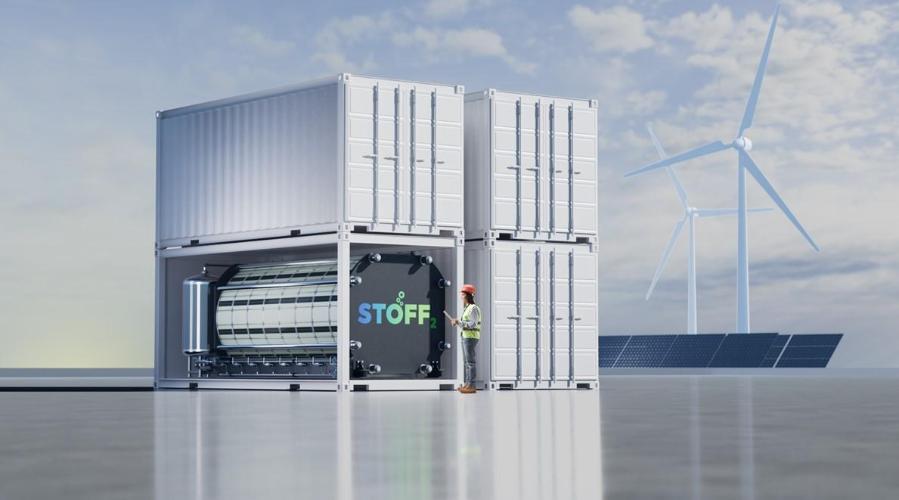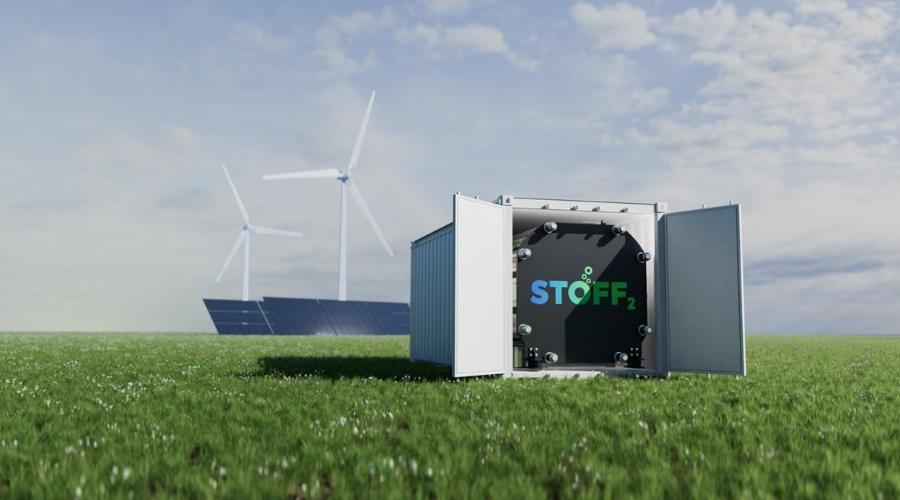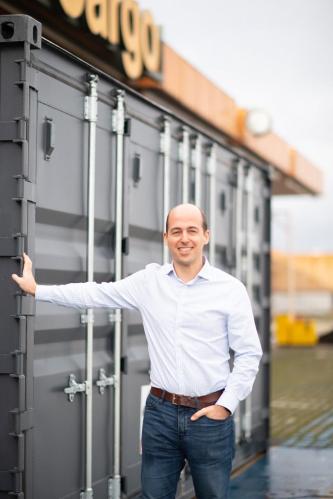
Reducing emissions requires a multi-pronged approach. We need to power our homes and businesses with green energy, move away from fossil fuels on the roads and be more innovative in how we produce and store energy. Nestled in the former Lufthansa cargo hall at Tegel Airport in Berlin, STOFF2 has a plan to generate green hydrogen, and a new storage technology that makes it possible. “We have a long track record in the renewable energy and energy storage industry, and we knew that these energy sources would generate huge amounts of excess power that can be put to good use to produce green hydrogen,” says Sebastian Sipp.


